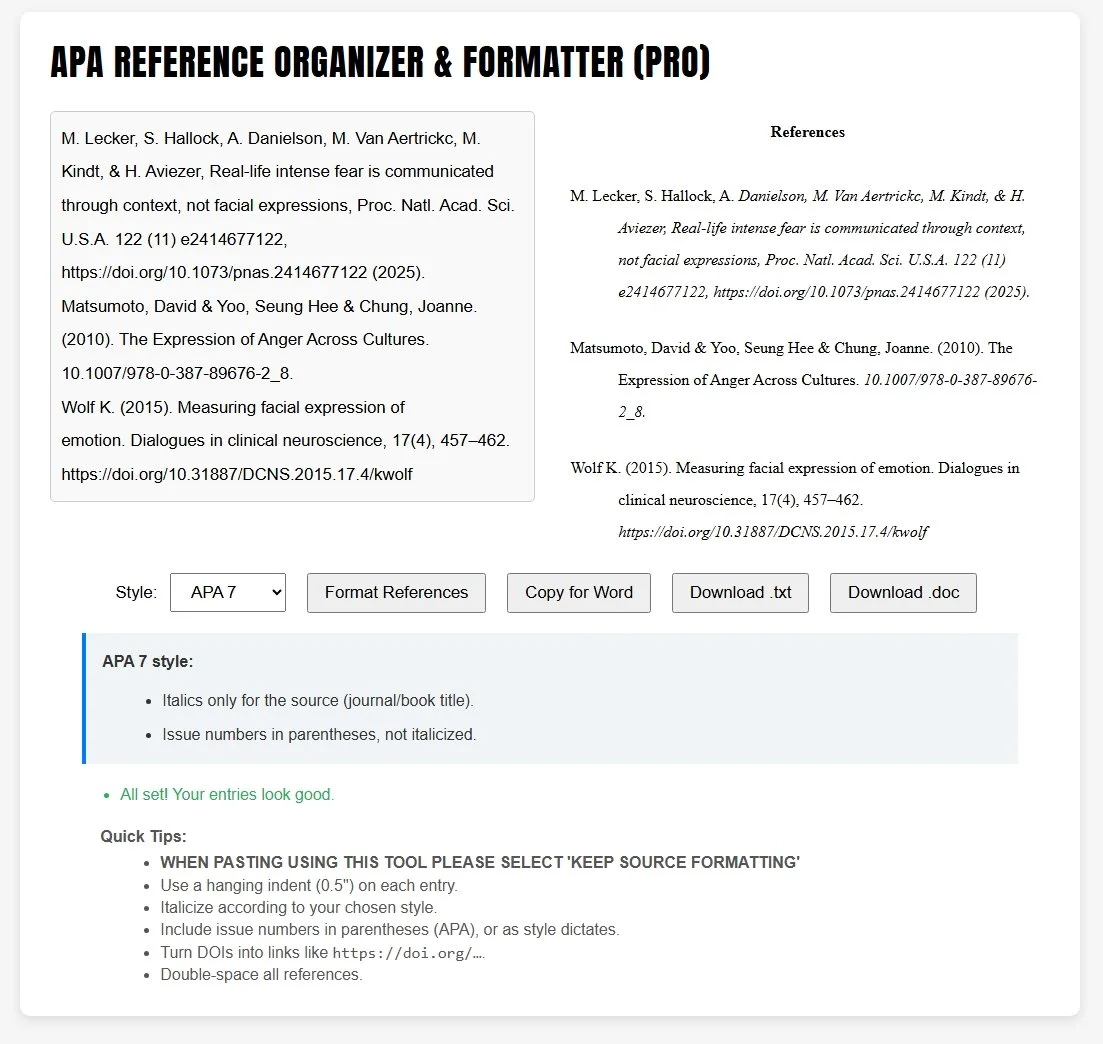In-Text Citations: Parenthetical vs. Narrative Explained
You know you need to cite your sources in APA style — but why are there two different ways to do it? What’s the difference between parenthetical and narrative citations? And more importantly, when should you use each?
Let’s break it down in under five minutes — no fluff, just clarity.
What Are In-Text Citations (And Why Do We Use Them)?
In-text citations are short references within your writing that point the reader to a full citation in your reference list. They give credit to the original source and show exactly where your information came from.
Every APA-style in-text citation includes:
The author’s last name
The year of publication
And if you’re quoting? You’ll also include a page number.
Now — let’s look at the two ways you can do this: parenthetical and narrative.
What Is a Parenthetical Citation?
A parenthetical citation is when both the author and the year appear in parentheses, usually at the end of a sentence or clause.
Example:
Anxiety disorders are among the most common mental health issues (Kessler, 2005).
You’re citing a fact, but you’re not naming the author in the sentence. Everything goes in the brackets.
Use it when:
You want to focus on the idea, not the source
The author isn’t important to highlight in your sentence
You’re summarizing multiple sources together
Multiple sources example:
Anxiety affects many individuals globally (Kessler, 2005; Smith & Jones, 2011).
What Is a Narrative Citation?
A narrative citation is when the author is mentioned as part of your sentence, and the year follows in parentheses.
Example:
Kessler (2005) found that anxiety disorders are among the most common mental health issues.
Here, you’re weaving the source into the structure of your writing. It flows more naturally when you're discussing a specific researcher or study.
Use it when:
You want to emphasize who made the claim
You’re discussing a study’s methods or findings
You’re comparing the contributions of different researchers
What About Direct Quotes?
When quoting directly, both formats still apply — you’ll just add a page number.
Parenthetical:
“Anxiety disorders are prevalent among adults” (Kessler, 2005, p. 182).
Narrative:
Kessler (2005) stated that “anxiety disorders are prevalent among adults” (p. 182).
Short quote? Include it in the sentence. Long quote? Use block formatting — but always cite clearly.
| Feature | Parenthetical Example | Narrative Example |
|---|---|---|
| Author & year in brackets | (Kessler, 2005) | Kessler (2005) |
| Author named in sentence? | No | Yes |
| Best for… | General claims or multiple sources | Discussing specific research or authors |
| Direct quote format | (Author, year, p. #) | Author (year) … (p. #) |
Common Mistakes to Avoid
Mixing both styles in one sentence
✘ Incorrect: According to Kessler (2005), anxiety is common (Kessler, 2005).
✔ Correct: Choose either narrative or parenthetical — not both.Omitting the year in narrative form
✘ Incorrect: Kessler found that anxiety is common.
✔ Correct: Kessler (2005) found that anxiety is common.Missing page numbers in direct quotes
Always include the page number when quoting, no matter the style.
Final Tip: Use Both Strategically
You’re not locked into one style for your whole paper. In fact, good academic writing uses both to control flow, emphasize authors when needed, and avoid repetition.
Think of narrative citations as your “feature a researcher” tool, and parenthetical citations as your “get to the point” tool.
Skip the Guesswork — Save Time with Our APA Tools
Formatting citations manually? Exhausting. Getting them wrong? Even worse.
We’ve built tools that make APA citation fast, clean, and accurate — whether you’re a beginner or buried in a thesis.
Free Tools
Great for getting started with APA citations, references, tables, and more.
Pro Tools
Built for students who need to save time and focus on the research.
Generate accurate in-text citations, organize references, and get instant formatting support — so you can stop second-guessing and start writing.
Explore our Pro tools and let citation formatting take care of itself.









